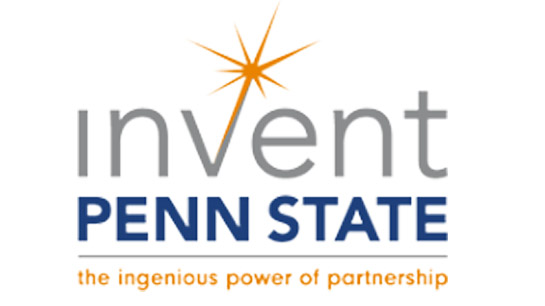For cancer patients, undergoing regular testing to monitor their complete blood count (CBC) is a necessary part of treatment. But the commute to and from the clinic, especially for patients who live in rural areas, combined with the additional risk of traveling while immunocompromised and the long wait to receive results, can make an already stressful and taxing process even more exhausting.
Karbasi witnessed firsthand the toll these frequent trips for blood work took on his already-exhausted grandfather while he underwent treatment for lung cancer. Motivated by this experience, Karbasi set out to mobilize the CBC process, making it simpler, safer, and more convenient for cancer patients.
With entrepreneurial guidance, education, and funding from programs at Penn State, Karbasi is developing HemoGO: a smartphone app capable of delivering a CBC in less than a minute, all within the comfort and security of one’s own home.

Shevy Karbasi, entrepreneur, CEO of Moichor; biology major, Eberly College of Science, Class of 2019
Impact
Because I believe technology can make health care more human.
“Our goals are to catch disease earlier, make treatment more manageable, and outcomes better. We want to help people going through a tough time by making health care more accessible, faster, and more affordable—and Penn State is helping us do that.”
Bringing Blood Testing Home
Karbasi knew that, if he could, he wanted to help prevent anyone from going through what his grandfather went through. And with his lifelong interest in science and biology, he also knew that Penn State had the world-class academics and cutting-edge research to help him accomplish his goals.
With support from Penn State, Karbasi has spearheaded the development of HemoGO, a smartphone app that uses a diabetes lancet and special phone attachment to deliver a complete CBC in minutes. The patient simply equips the phone attachment over their smartphone’s camera, uses the pain-free lancet to extract a drop of blood, then places the droplet onto the test strip built into the phone attachment, and HemoGO takes care of the rest.
“I don’t want anyone else to have to go through that experience that my grandfather did, to have their loved ones go through something so draining. Helping someone have a better blood testing experience means the world to me.”

Using proprietary technology, the app uses the smartphone’s camera to read and analyze the results, which are then delivered to both the patient and their doctor in less than a minute. Being able to regularly complete their CBCs at home will let patients and their physicians track any changes in their blood over time, while making the blood testing quicker, easier, and more convenient for both the patient and the doctor.
“I don’t want anyone else to have to go through that experience that my grandfather did, to have their loved ones go through something so draining,” Karbasi said. “Helping someone have a better blood testing experience means the world to me.”
Leveraging Penn State Resources
Karbasi has always had an interest in entrepreneurship—in high school and his first year of college, he launched two startups, which ultimately failed due to a lack of resources and knowledge. And having interned with both Massachusetts General Hospital and Penn State’s Millennium Science Complex, he knew the ins and outs of the science behind CBCs—but not so much what it takes to launch a successful company built around providing them.
To help transform his idea for a smartphone-based CBC test into a viable product, Karbasi formed a startup business, named Moichor, and applied to the FastTrack Accelerator program offered through Happy Valley LaunchBox Powered by PNC Bank. The 15-week program gives Penn State students the knowledge and tools they need to take their products to market.
“There is unlimited access to such a wide breadth of knowledge, incredible research, and people who can help you achieve your dreams.”
The accelerator’s intensive curriculum helped prepare Karbasi to be a CEO, with personalized guidance and mentorship on how to test his business assumptions, define a viable business model, and begin work on designing prototypes. Karbasi credits resources like these with setting Moichor apart from his previously unsuccessful startups.
“That was key for turning this from just an idea into a real-world product,” Karbasi said. “Everyone on the team, we were learning something new every week: how to create a persona of your customer, how to be agile in planning, best practices to manage people—and we use everything we’ve learned all the time now.”
To continue working on his product and his new business, Karbasi applied to Penn State’s Summer Founders program, which provided further guidance on all the nuances of running a successful business: how to keep track of the company’s finances, how to produce executive summaries and promotional one-pagers, how to analyze their competition, and how to navigate the legal proceedings for starting a company and trademarking products.
Making Valuable Connections
As part of Penn State Startup Week’s IdeaMaker challenge, Karbasi and his colleagues were able to attend the GrowCo Entrepreneurship Conference in New Orleans, where they learned from some of the world’s leading entrepreneurs and made invaluable networking connections across business and industry.
“At Penn State, you can find people that share your passions,” Karbasi said. “There is unlimited access to such a wide breadth of knowledge, incredible research, and people who can help you achieve your dreams.”

Using Penn State's entrepreneurial resources, Shevy developed a proprietary test strip and a phone camera attachment that can analyze a user's CBC in less than a minute.
“Here, we’ve had access to people who share
our passion, to entrepreneurial resources and training, and to expertise from researchers at the top of their fields.”
The Penn State network has also helped introduce Karbasi and his colleagues to some of the top names in their field, providing invaluable networking opportunities with figures including Dr. Raymond Hohl, director of the Penn State Cancer Institute, and Dr. Michael Creer of Clinical Pathology at Penn State Health Milton S. Hershey Medical Center, who has been assisting them on the clinical side of their business. Connections with the Penn State Learning Factory in the College of Engineering has given Moichor access to free 3D printing technology, while faculty from Penn State Law’s Entrepreneur Assistance Clinic
The Penn State alumni network, one of the largest in the world, has also been an important resource for Karbasi and his team, as they’ve been able to connect with alumni who are helping them find entrepreneurial opportunities in urban hubs around the country.
“Everything would’ve taken so much longer, and been so much

Invent Penn State is a Commonwealth-wide initiative to spur economic development, job creation, and student career success. Invent Penn State blends entrepreneurship-focused academic programs, business startup training and incubation, funding for commercialization, and university-community collaborations to facilitate the challenging process of turning research discoveries into valuable products and services that can benefit Pennsylvanians and humankind.

The Eberly College of Science is home of the biological, physical, and mathematical sciences at Penn State. Ranked as one of the top ten academic institutions in the basic sciences nationwide, the college empowers undergraduates, graduates, and faculty members to engage in foundational and pioneering research and make discoveries with widespread impact.

Shevy Karbasi recently wrote an op-ed article for Newsweek about his experience as an entrepreneur and a Penn State student. In the article, Shevy discusses his inspiration, past startup experiences, and the entrepreneurial resources he found at Penn State.



